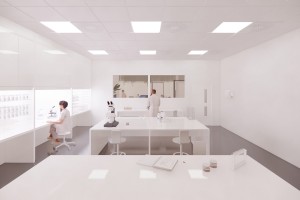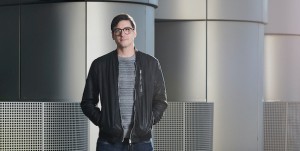Plans to develop a world-class ‘deep tech’ ecosystem in Bristol where scientists and engineers can accelerate ground-breaking ideas have been unveiled by one of the city’s most successful entrepreneurs of recent years.
The scheme, led by Bristol-based chemist and investor Dr Harry Destecroix, includes an incubator, a £15m early-stage investment fund and a network of strategic partners, mentors and advisors. 
Harry, pictured below, has first-hand experience of commercialising scientific discoveries having co-founded University of Bristol spin-out Ziylo, which was sold to global healthcare company Novo Nordisk in a deal which could be worth around $800m (£628m).
He believes Bristol, which is already one of the top 15 destinations in the world for venture capital having received $500m last year, can become the ‘new West Coast’ with the right ecosystem in place.
He points out that while Bristol has as a long history of world-class academic research, this has not always been well translated into products and services that can make a difference outside of the lab
His ecosystem – called Science Creates – will help potentially market disrupting deep tech products commercialise successfully, and overcome the very unique challenges this part of the tech market faces.
Science Creates grew out of the original incubator, Unit DX, that Harry set up in collaboration with the University of Bristol in 2017 to commercialise companies like his own, Ziylo, which aimed to develop one of the first smart insulins to help people suffering with diabetes
Harry said: “Where a discovery is made has a huge bearing on whether it’s successfully commercialised. 
“While founding Ziylo I became aware of just how many discoveries failed to emerge from the lab in Bristol alone.
“No matter the quality of the research and discovery, the right ecosystem is fundamental if we are going to challenge the global 90% failure rate of science start-ups, and create many more successful ventures.”
The Science Creates ecosystem includes:
- Science Creates Incubators: Unit DX houses 37 scientific and engineering companies working with technologies that will help improve healthcare, the environment around us and quality of life. The opening of a second incubator, Unit DY, close to Bristol Temple Meads railway station, will enable the ecosystem to support 100 companies which could provide 450 jobs and brings Science Creates’ physical footprint across the two units to 45,000 sq ft.
- Science Creates Ventures: Science Creates Ventures launches with its first fund, a £15m venture capital fund offering start-up investment. The fund is supported and backed by successful Bristol-based entrepreneurs behind some of the South West’s biggest deep tech exits. Despite being a new fund and the challenging fundraising environment, the Science Creates Ventures EIS Fund has raised significantly more than many other EIS Funds.
- Science Creates Network: Network is a portfolio of strategic partners, mentors and advisors specifically tailored to the needs of science and engineering start-ups. The breadth and depth of these circles of expertise will continue to grow and flourish, creating a connected community of support that adds value to deep tech companies and a sustainable platform for teams to partner with Science Creates in the future.
Harry added: “The start-ups we bring into Science Creates need more than Wi-Fi and strong coffee.
“They need well-equipped lab space as well as sector-specific business support, qualified talent and investment from sources that understand what it takes to build a successful deep tech business that will disrupt markets and change the world.
“We have lived in this space, understand the innovations we support, and know what our ecosystem needs to deliver to build from the discovery upwards. It makes us better equipped to spot and nurture the winners.
“What’s more, we believe Bristol has the economic potential to become a global deep tech hub with its location, talent and its unique blend of diverse, pioneering and rebellious ingredients to change the world.”





























